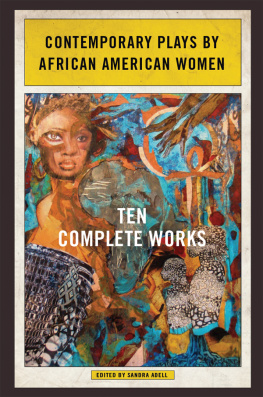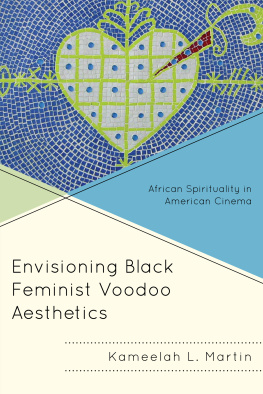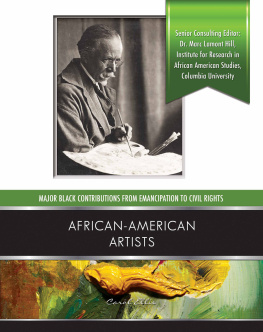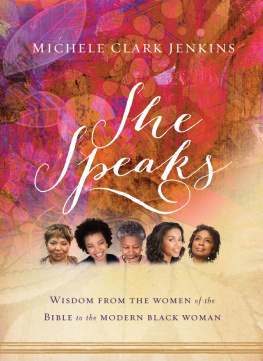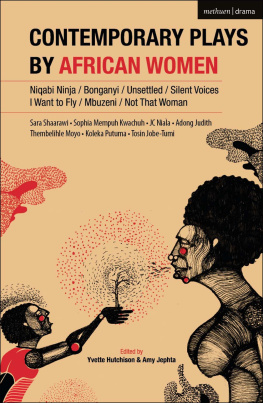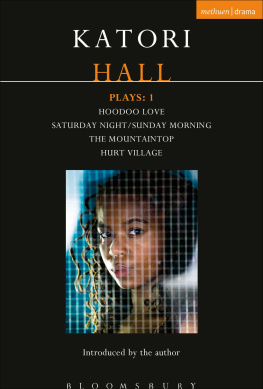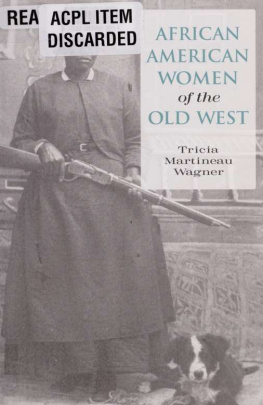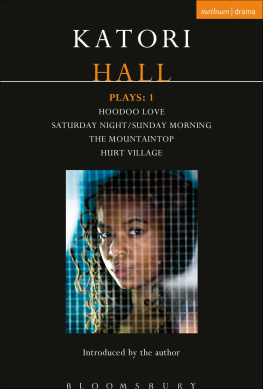Acknowledgments
I thank the University of WisconsinMadison for granting me a Vilas Associate Award, which enabled me to attend performances of new plays by African American women playwrights in regional theaters throughout the country. The award also provided me with much-needed funding to participate in two Black Theatre Network conferences and, in 2011, the National Black Theatre Festival in Winston-Salem, North Carolina. I thank the members of the Black Theatre Network, whose collective knowledge about all things concerning black theater is a living archive. Special thanks are due Kathy Perkins, who unselfishly offered advice and guidance based on her many years of working in theater as this country's premier African American lighting designer. I also thank Sandra G. Shannon and Sandra L. Richards, whose work on black theater and performance studies has helped establish black theater history and research as a solid academic area of inquiry. Thank you to the women who graciously contributed their plays to this anthology and to the editors at the University of Illinois Press. Finally, I thank Lisa B. Thompson, who suggested to me several years ago that it was time for a new anthology of plays by African American women, and Dawn Durante and Derek Zasky, who taught me important lessons about the business of publishing.
Sandra Adell
University of WisconsinMadison
SANDRA ADELL is a literature professor in the Department of Afro-American Studies at the University of WisconsinMadison. She is the author of Double-Consciousness/Double Bind: Theoretical Issues in Twentieth-Century Black Literature.

The University of Illinois Press
is a founding member of the
Association of American University Presses.
University of Illinois Press
1325 South Oak Street
Champaign, IL 61820-6903
www.press.uillinois.edu
TANYA BARFIELD

Born in San Francisco and raised in Portland, Oregon, Tanya Barfield began her career in theater as an actor. After receiving her undergraduate degree in acting from New York University, where she performed in many different plays, she soon realized that her opportunities in professional theater were limited. She therefore began writing and performing her own work in a solo show titled Without Skin, Or Breathlessness. She eventually grew tired of being herself on stage, as she commented in an interview, and turned to writing plays. An invitation in 1998 by the playwright Chiori Miyagawa to join a fellowship program she founded for emerging writers of color at the New York Theatre Workshop helped Barfield make the transition from actor to playwright. A workshop helmed by director Leigh Silverman followed and led to Barfield's being accepted into the prestigious Juilliard Playwrights Program in New York. Barfield received an Artist Diploma from Juilliard in 2002.
Tanya Barfield is a recipient of several honors and awards, including a Helen Merrill Playwrights Award (2003) as well as a Lilly Award and the inaugural Stacey Mindich Prize (2014). In addition to Blue Door, which has been produced in regional theater companies throughout the country, Barfield has written Of Equal Measure, The Call, Bright Half Life, and several solo and short plays.
Blue Door was commissioned by Playwrights Horizons with funds provided by the Harold and Mimi Steinberg Commissioning Program. It received its world premiere on August 23, 2006, at South Coast Repertory Theatre.
| Director: | Leah G. Gardiner |
| Lewis: | Reg E. Cathey |
| Simon/Rex/Jesse: | Larry Gilliard Jr. |
| Set: | Dustin ONeill |
| Costumes: | Naila Aladdin Sanders |
| Lighting: | Lonnie Rafael Alcarez |
| Sound: | Jill BC Du Boff |
| Stage manager: | Randall K. Lum |
| Dialect coach: | Philip D. Thompson |
| Dramaturg: | John Glore |
| Production manager: | David Levenworth |
| Original lyrics by Tanya Barfield. Original music by Larry Gilliard Jr. and Leah Gardiner. |
BLUE DOOR
Generations of Black Men
A play for two actors.
CHARACTERS
Lewis (mid-life)
Simon, Rex, Jesse (young)
(There should be approximately a twenty-five-year age difference between the two actors. The actor playing Simon, Jesse, and Rex must be able to sing.)
SETTING
There are two spaces: the one Lewis occupies and a separate place. There is a door. The door is not to be actually represented, but it figuratively exists. There are no blackouts. Each man will remain on stage for almost the entire play. At only one point in the evening will one of the men exit. The play occurs between 1851 and 1995.
SONGS
The songs are to be sung a cappella. The melody of each song should be written in the musical style specific to the character, situation, and period.
A NOTE ABOUT THE MONOLOGUES AND CHARACTERS
The play involves storytelling, and in many cases one character will assume the identity of another during his story. As a general rule, if a new character name does not appear before the internal dialogue, then a total personification of the character may detract from rather than add to the story.
When Lewis speaks in the voice of his wife, he does not completely assume a feminine identity. Lewis's wife may have an airy faade, but she's also a smart and caring woman. As with all the roles (but particularly with the slaves), it is important not to play stereotypes. Simon is highly intelligent and he does not speak slowly. During even the most trying of circumstances, Simon is heartfelt but never sentimental, indulgent, or self-pitying. When Simon embodies the character of Jonathan, he plays Jonathan as a complicated young man whose actions are hurtful but without intentional malice. Simon's mother's accent is Gullah: a Creole blend of Elizabethan English and the language of her African ancestry. Simon does not share his mother's accent.
Although Lewis and Rex often debate issues, the strife between them is not a social or political critique. Their opposing views are personal and familial, about both identity and sibling rivalry. There is a deep need between these brothers, and their relationship is one of great conflict but also great love. Jesse is performative and entertaining and he imbues his stories with humor. It is only through song that Jesse expresses the depth of his feelings.
It is a peculiar sensation, this double-consciousness, this sense of always looking at one's self through the eyes of others, of measuring one's soul by the tape of a world that looks on in amused contempt and pity. One ever feels his twoness,an American, a Negro; two warring souls, two thoughts, two unreconciled strivings; two warring ideals in one dark body, whose dogged strength alone keeps it from being torn asunder.
W. E. B. Du Bois
1995. It is night. Lewis, a refined, well-educated man in his fifties, is in the throes of insomnia. Hovering on the edge of Lewis's awareness, a young boy can be heard singing an invocation in Yoruba.
ANCESTOR:
| Baba agba | Grandfather |
| Iya agba | Grandmother |
| Mo pe o | I call on you |
| Eniyan fo soke | Fly, people |
| Eye fo soke | Fly, bird |

